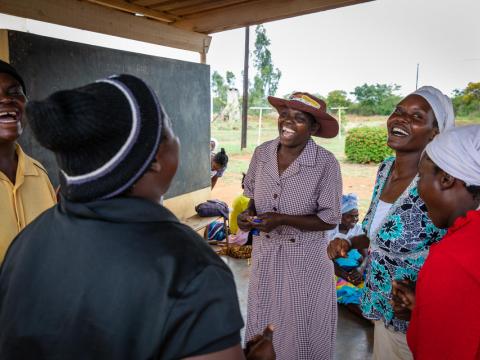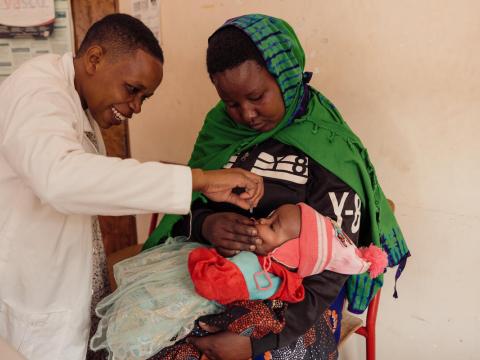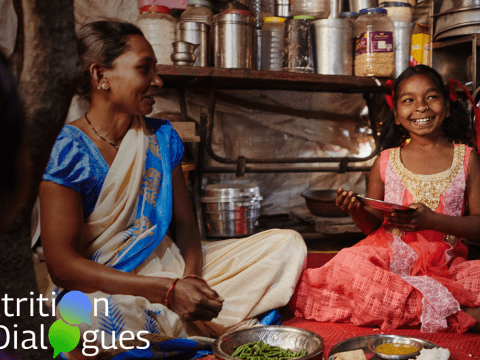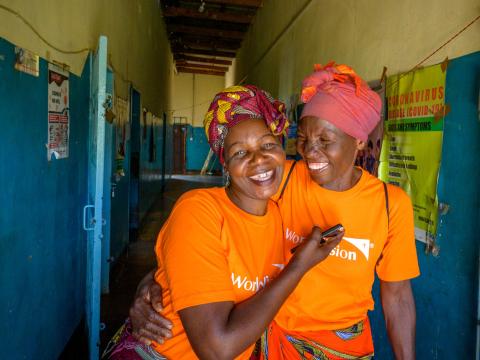
Are your Community Health Workers salaried, skilled, supervised and supplied?
Ahead of the 4th International Community Health Worker (CHW) Symposium (12-14 November 2025), Global Health expert Michele Gaudrault argues that CHWs require support, remuneration, and reasonable workloads, and that promoting this CHW support is a smart investment for global health.
5 November 2025
Think for a moment about your current work situation. Do you have the tools you need to do your job well? What about the necessary skills – do you feel qualified and confident, having received the training you need for your role? Do you meet frequently with your supervisor, and does your supervisor assist and support you? How do you feel about your financial compensation?
No, this isn’t an end-of-year survey coming to you from your Human Resources department, although you could be forgiven for thinking so! These are questions that many organisations ask of their staff on a periodic basis. If this is the case for you, consider yourself fortunate that the organisation you work for pays attention to these important elements of work performance and job satisfaction.
Now imagine, for a moment, a scenario where none of these things are in place in your job. Your work supplies are out of stock much of the time. You received an initial three-day training and were then assigned duties that require twice as much of your time as originally agreed. You only talk to your supervisor once a month. And to top it all off, you are not paid for your work.
Lamentably, this scenario - or scenarios closely resembling it - is the current state of affairs for many Community Health Workers (CHWs) around the world.
The Critical Role of Community Health Workers
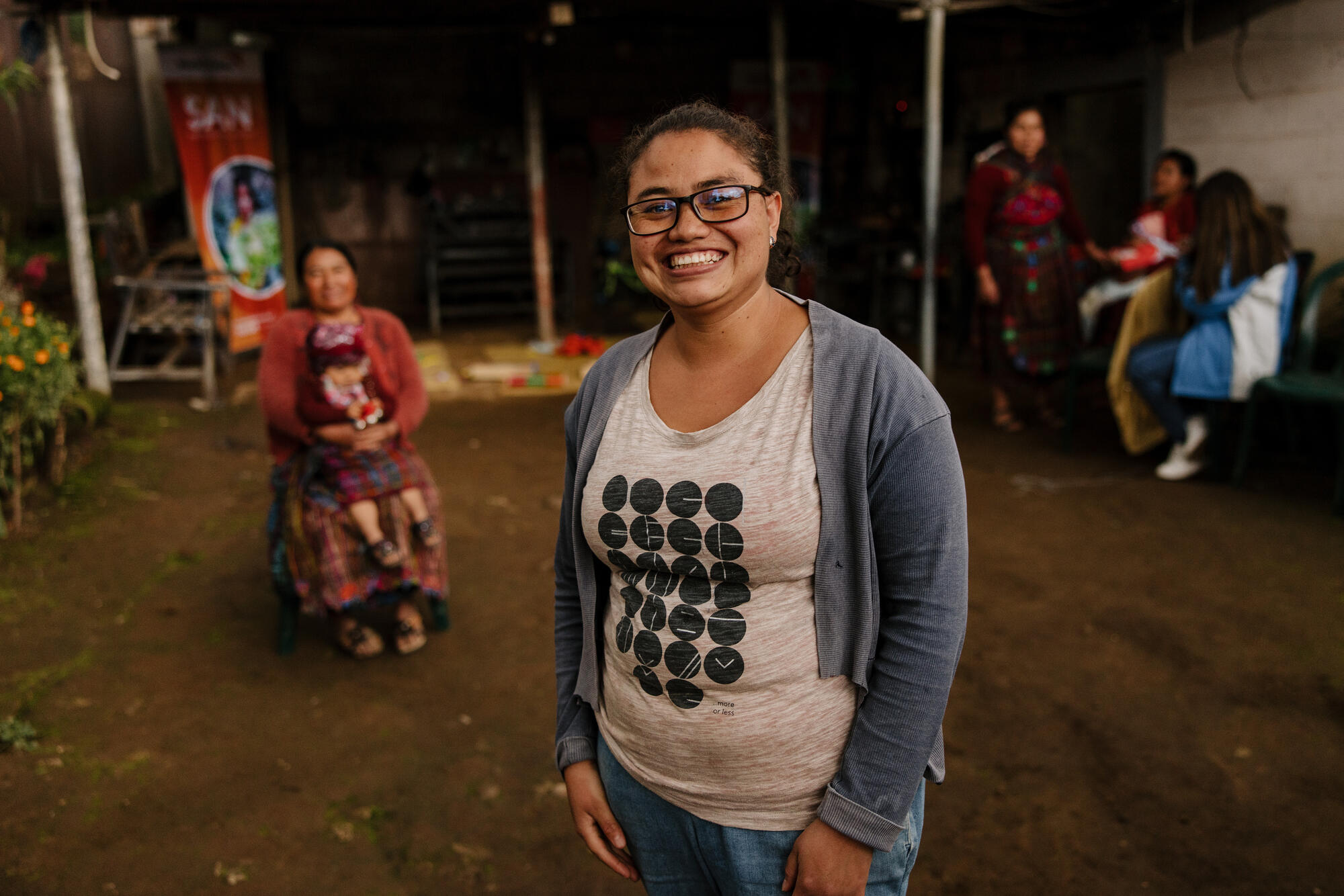
Since the Alma-Ata Declaration of 1978, CHWs have been recognised as key to providing front line care and support in communities around the world. More than half of the world’s population – approximately 4.5 billion people – are not fully covered by essential health services. The World Health Organization (WHO) estimates a shortage of 10 million healthcare workers in low- and middle-income countries by 2030. CHWs play a crucial role in helping to close this gap. They represent one of the most cost-effective ways to reach vulnerable families and communities, with studies showing an estimated $10 return for every $1 invested. There is clear and growing evidence that CHWs are effective in delivering a range of preventive, promotive, and curative health services, and in reducing inequalities in access to care.
The 4 Ss: Salaried, Skilled, Supervised, Supplied
However, in order to realise this promise of expanding services to all those who need them through CHWs, the CHWs themselves need to be given reasonable workloads, and to be adequately supported with the ‘4 Ss’ – to be salaried, skilled, supervised and supplied.
A 2022 study showed that CHWs in Africa are out of stock of essential supplies one-third of the time. Many CHWs do not have regular contact with supervisors. Despite growing global consensus and advocacy for fair pay and working conditions, around 50% of CHWs globally are unpaid, with this figure rising to 80% in Africa.
This is not only a workforce issue, but a gender one. CHWs are majority female. Fair pay and support for CHWs is therefore also an issue of gender equality and the value of caring work.
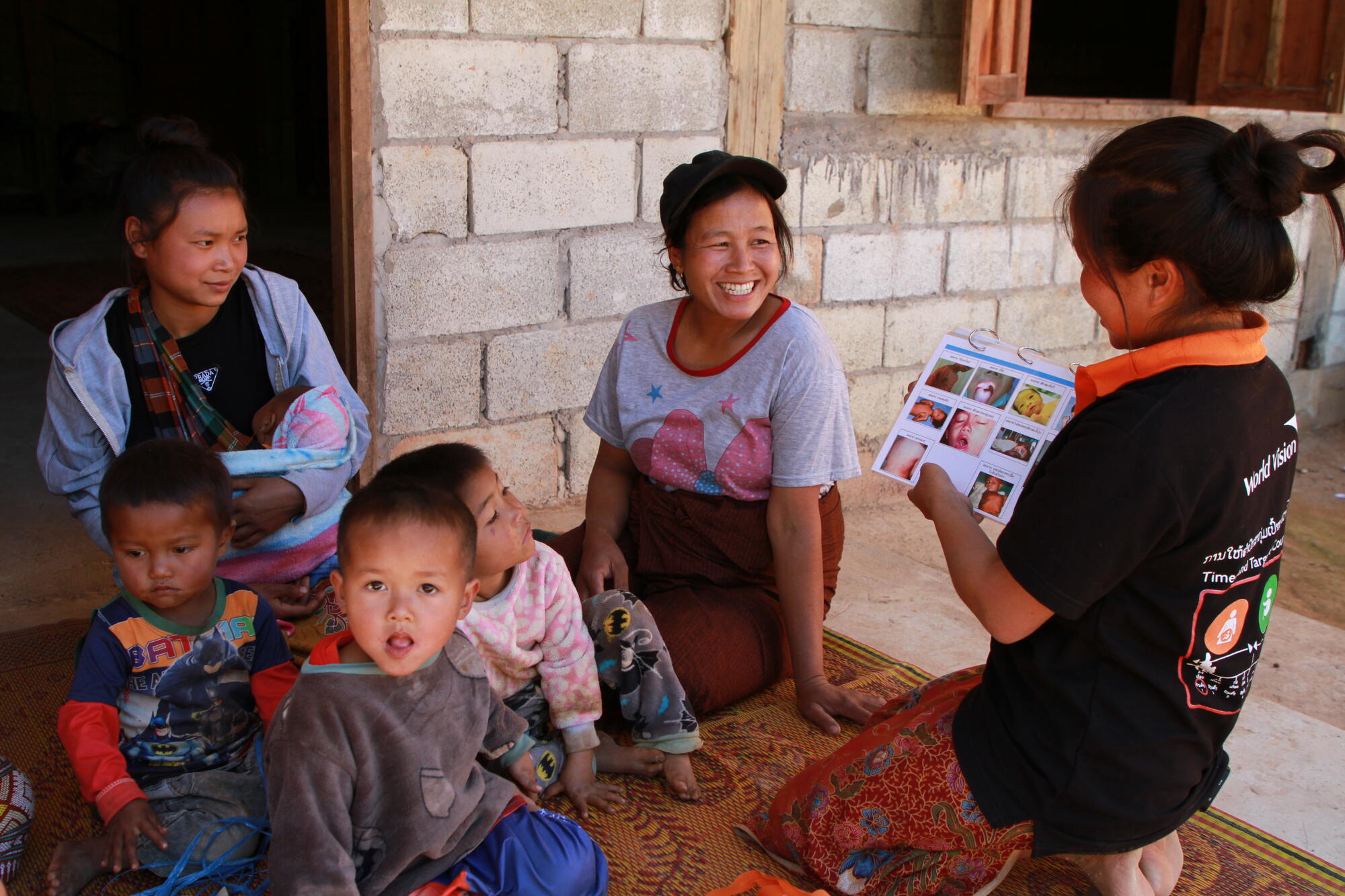
World Vision’s Commitment to CHWs
World Vision supports nearly 200,000 CHWs in 43 countries. Health and Nutrition Managers in these countries are working to ensure that the ‘4 Ss’ are embedded not only in World Vision’s areas of operation, but also through national-level advocacy and partnerships with Ministries of Health.
In Kenya and Uganda, World Vision collaborated with Ministries of Health to conduct CHW programme maturity assessments and develop action plans using a tool we developed known as the Health Systems Assessment and Improvement Matrix. In Eswatini, we assisted the Ministry in carrying out a national CHW workload analysis. These exercises led to improvements in CHW working conditions in all three countries and reflects our commitment to strengthening CHW systems globally.
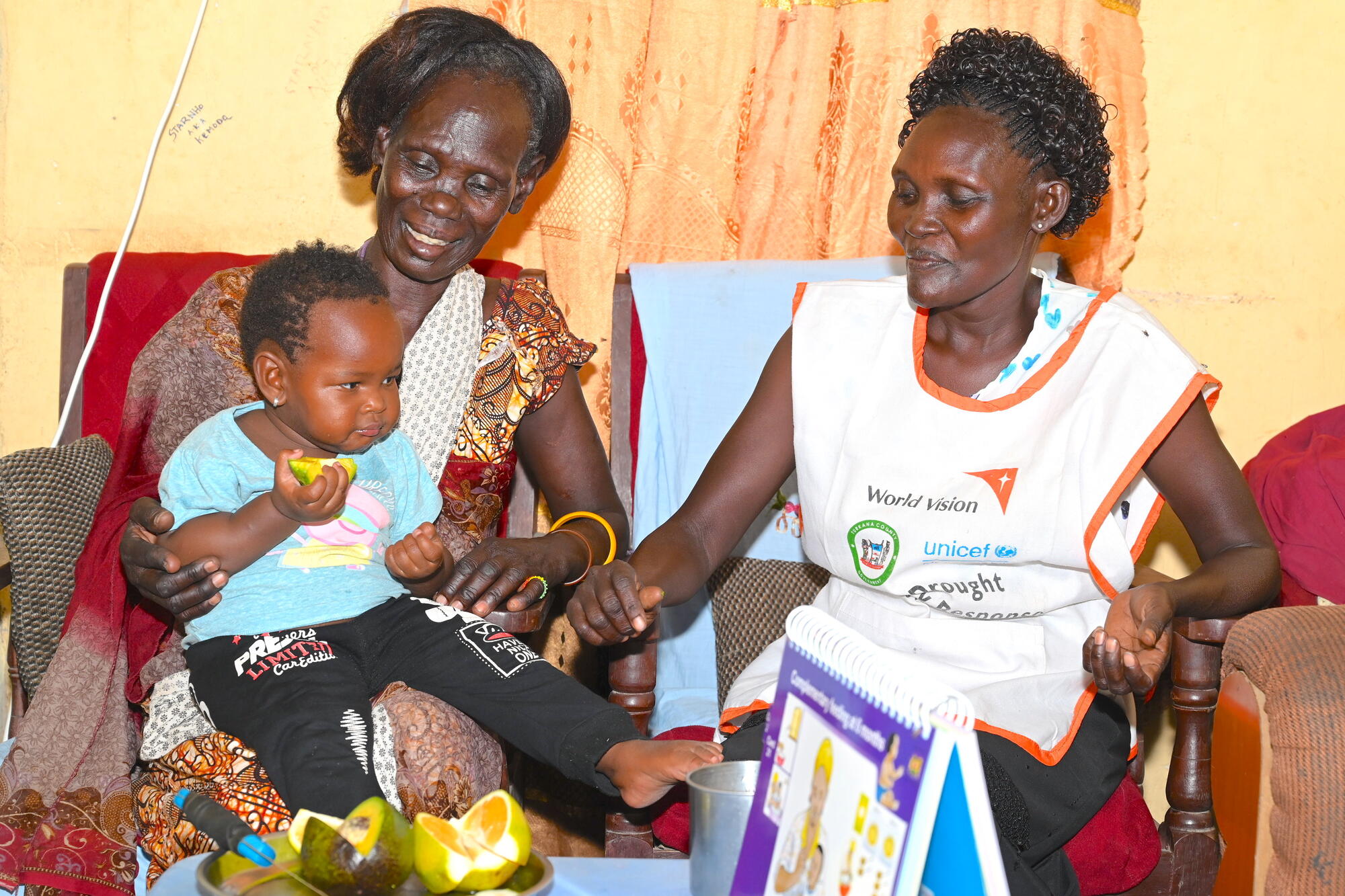
Looking Ahead: The 4th International CHW Symposium
The 4th International CHW Symposium will offer a key opportunity for governments, donors, NGOs, academics, and CHWs themselves to share learnings, and to highlight successful examples of CHW professionalisation in countries such as Ethiopia, Kenya, and Malawi. World Vision will give 14 presentations from 13 countries across Asia and Africa. We will use this opportunity to showcase our strong record of CHW engagement, learn from others, and join our voices and efforts in the crucial movement to ensure fair working conditions for these unsung frontline heroes.
Doubling Down on the Monrovia Call to Action
The 3rd International CHW Symposium held in Liberia in 2022 led to the Monrovia Call to Action that seeks among its five points to make professional CHWs the norm, reiterating the ‘4 Ss’ and the issue of gender equality. Three years later, in a time of increasingly constrained fiscal space, we must double down on the Monrovia commitment, recognising that investing in CHWs is not only the right thing to do, but is a smart investment for global health and the global health workforce.
Learn more about World Vision’s work with CHWs.
Michele Gaudrault is Technical Director, Health and Nutrition, Global Programmes and Resources at World Vision International. Michele oversees World Vision’s support of nearly 200,000 CHWs in 43 countries and leads the CHW Mentoring Programme with Health and Nutrition managers in these countries, aimed at systems strengthening for programme improvements in World Vision’s areas of operation, and nationally. Michele spent 25 years in Mozambique and Eswatini.
